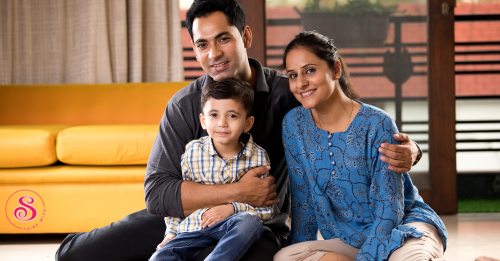Being a parent is a lifelong journey filled with joys, challenges, and responsibilities. In the Indian context, where values, traditions, and cultural expectations hold significant importance, parenting takes on a unique flavor.
The Indian Parenting Landscape
Cultural expectations, societal norms, and traditional values all have a significant impact on Indian parenting. The focus on discipline, respect for authority, and family-centric values shapes parenting practices and beliefs. Let’s explore some key dimensions to consider in determining your effectiveness as parents.
Answer these questions first and note your answers.
1: What is the significance of emotional well-being in Indian parenting?
A) It is not a priority. B) It is essential for holistic development. C) It is only relevant during challenging times.
2: What is the importance of balancing independence and discipline in Indian parenting?
A) Strict discipline is always preferred. B) Independence should be encouraged at the cost of discipline. C) A balance between the two promotes healthy development.
3: Which statement aligns with the concept of holistic growth in Indian parenting?
A) Academics should be the sole focus. B) Only extracurricular activities matter. C) Balancing academics and extracurricular activities is important.
4: What is the role of cultural expectations in Indian parenting?
A) Cultural expectations should always dictate a child’s choices. B) Cultural expectations should be disregarded entirely. C) Balancing cultural expectations with individuality is crucial.
Also read, Do You Want To Shape Your Child’s Behavior?
1. Nurturing Emotional Well-being
How well do you support your child’s emotional needs? Do you encourage open communication, validate their feelings, and provide a safe space for expression? These factors contribute to your child’s emotional well-being and resilience. Good parenting involves nurturing the emotional well-being of your child. It means creating a safe and supportive environment where your child feels comfortable expressing their emotions. Encourage open communication, listen to their feelings, and validate their experiences. By doing so, you help them develop emotional resilience and a healthy sense of self.
2. Balancing Independence and Discipline
How do you strike a balance between fostering independence and enforcing discipline? Indian parenting often emphasizes obedience and adherence to societal norms. However, it is essential to nurture independence, critical thinking, and decision-making skills in your child.Good parenting is about finding the right balance between fostering independence and enforcing discipline. While discipline helps in teaching important values and setting boundaries, allowing independence enables your child to develop their decision-making skills and critical thinking abilities. It’s essential to guide them towards making responsible choices while nurturing their individuality.
3. Academic Achievement vs. Holistic Growth
In the Indian context, academic excellence is often prioritized. However, holistic growth encompasses physical, emotional, and social development. Do you provide opportunities for your child to explore their passions, engage in extracurricular activities, and foster a well-rounded personality?Good parenting goes beyond focusing solely on academic achievements. While education is important, it is equally essential to encourage your child’s holistic growth. This includes supporting their physical, emotional, and social development. Provide opportunities for them to explore their passions, engage in extracurricular activities, and develop a well-rounded personality.
4. Navigating Cultural Expectations
Indian parenting often involves managing cultural expectations, such as career choices, marriage, and societal roles. How well do you support your child’s aspirations while navigating these expectations? Are you open to unconventional paths and supportive of their individuality?Good parenting involves navigating cultural expectations while supporting your child’s aspirations. Indian society often has certain expectations regarding career choices, marriage, and societal roles. It is important to strike a balance between cultural norms and your child’s individuality. Encourage them to pursue their dreams, explore different paths, and make choices that align with their interests and talents.
Here’s the answer key for the multiple-choice questions:
Multiple Choice Question 1: What is the significance of emotional well-being in Indian parenting? Answer: B) It is essential for holistic development.
Multiple Choice Question 2: What is the importance of balancing independence and discipline in Indian parenting? Answer: C) A balance between the two promotes healthy development.
Multiple Choice Question 3: Which statement aligns with the concept of holistic growth in Indian parenting? Answer: C) Balancing academics and extracurricular activities is important.
Multiple Choice Question 4: What is the role of cultural expectations in Indian parenting? Answer: C) Balancing cultural expectations with individuality is crucial.

